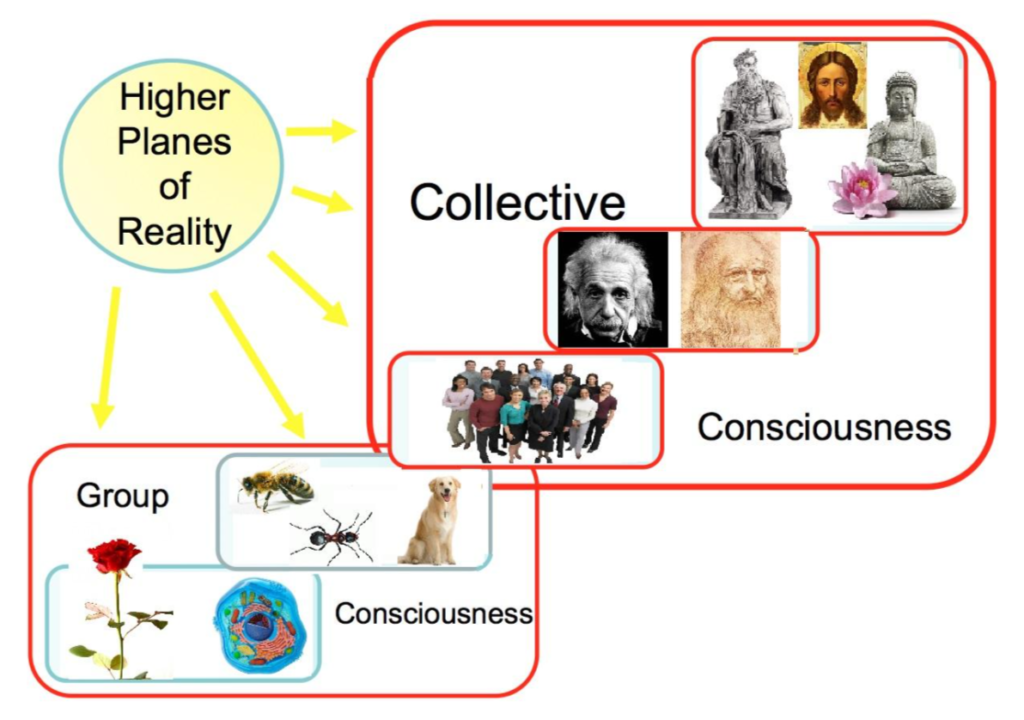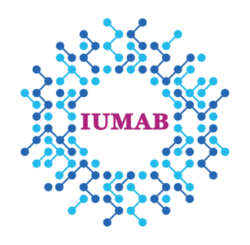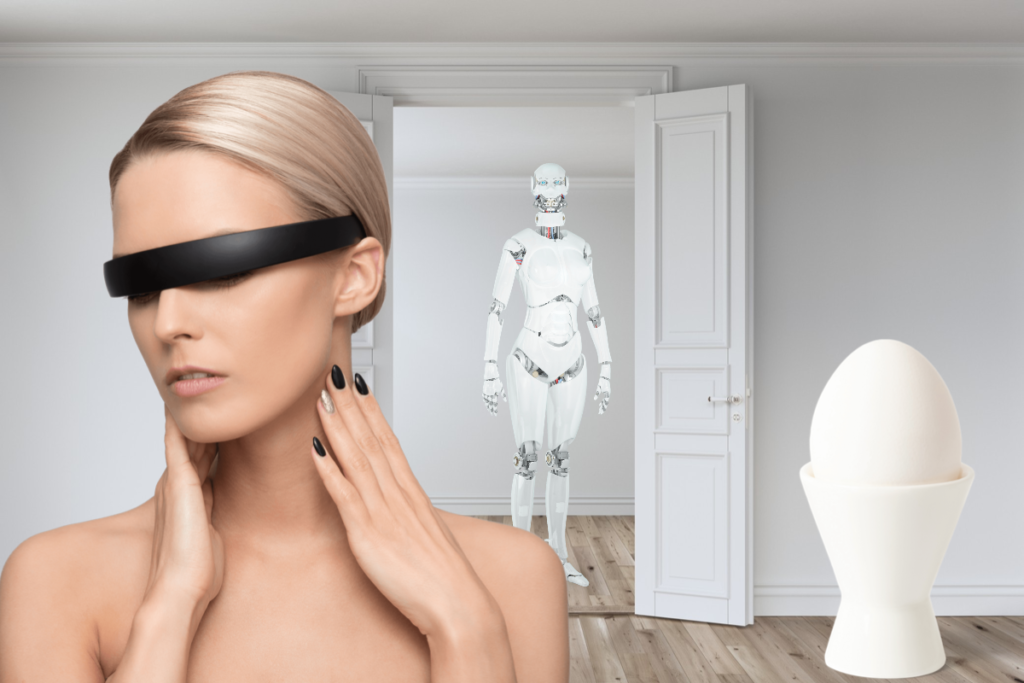WHAT IS CONSCIOUSNESS?
Konstantin Korotkov, PhD, Prof.
St. Petersburg University of Informational Technologies, Mechanics and Optics St. Petersburg, Russia
“I sent my Soul through the Invisible, Some letter of that After-life to spell: And by and by my Soul return’d to me, And answer’d “I Myself am Heav’n and Hel”
Omar Khayyam (1048-1131)
First step in science is to give a definition. People often argue for hours about certain topics, defending different positions, but in reality, they are talking about different things: everyone keepS in mind his or her own understanding of the topic. So let us start with definitions of what we understand by the term “Consciousness”.
The history of attempts to build a rigorous, not intuitive definition of consciousness is rooted in the distant past. Moreover, all these attempts are inevitably based on an a priori division of the whole of nature into conscious and unconscious: the definition should only formally draw this border exactly where expected. Depending on this, the authors of the concept make statements about the adequacy of the specific wording. Definitions based on this division, are subjective and, biased, most often in favor of Homo sapiens. With this approach, avoiding logical tautology is not possible in principle.
Furthermore: being the foundation for experiments, such an approach to the definition of consciousness inevitably leads to incorrect results. Thus, in the well-known experiment the experimenter removes the bell from the entrance to the wasp nest, and the wasp completes a new one. Further, he makes a hole in the tube bend before the bell, and the wasp builds both the tube, and the bell. “Aha!” says the experimenter, “Now you see, the wasp has no reason!” But if aliens, as an experiment, make a hole in somebody’s shirt over and over again, the person will first try to patch them, then he will buy new shirt, but eventually he will throw them out of the window, swearing and pounding his feet. “Aha!” the alien will say, “Now you see, Man has no reason!”
The reason here is that we assume a priori which behavior is reasonable and which is not. Experimenting not on ants and wasps, but on a man working on an assembly line, you would find just as strong evidence that he is no more than a biorobot. The Persian mathematician, astronomer, philosopher, and poet entertainment industry and a TV program guide can provide us with even more impressive indication of the total lack of human reason.
In our studies we use the following definition:
Consciousness is a property (ability) of natural objects to form abstract representations of the outside material world, suitable for use in purposeful activity through sensory perception.
In more simple form:
Consciousness is the ability of a subject to react to environmental information and change its behavior in accordance with this information.
From this point of view, every living organism possesses consciousness: all animals, large and small above ground and under, in the air and in water; plants; microorganisms and every cell of our body. At the same time, inanimate subjects do not possess consciousness: stone may be warmed by the sun, but it will not move or change its color to avoid overheating.
But how about robots – in accordance with this definition some of them possess consciousness?
From our point of view, robots replicate elements of the consciousness of their creators. Living beings are able to modify their features in case of rapid changes in circumstance even at the cost of death of part of the population. Of course, to some extent: out of millions of years during the kingdom of dinosaurs only crocodiles were able to survive. Robots may behave in accordance with a program, designed by engineers, and their ability to modify is quite limited. At least, within the limits of known technologies.
All discussions above are related to the first, basic levels of consciousness.
Next level of consciousness is the ability of a subject to predict future events, remember past events, plan and modify its behavior to meet future situations in accordance with their experiences.
This level is characteristic of for higher animals and humans. All owners of cats and dogs know that their pets may be very smart when it comes to not only their favorite food, but often to their relationships with their masters. Interesting examples were presented in the book by Rupert Sheldrake “Dogs That Know
Their Owners are Coming Home” (1999). Seven experiments demonstrated that dogs were able to predict their masters’ return and were waiting near by the door. We know many stories about conscious behavior of dolphins and elephants, not to mention monkeys and crows. All mentally healthy people have this level of consciousness, albeit to different extents. Children possess this level at the age of two-three years.
Next level of consciousness is the ability to generate new ideas, exchange these ideas with others, transmit them to next generations and manifest them in objective reality.
Only humans possess this ability. Ants build their huts in the same way for millennia, as do bees, birds and many other animals. We cannot explain how they achieved this ability, who taught them, but they never changed the structure of their constructions.
Very rarely do they introduce new elements acquired by random trials. For humans, creativity is the basis of the development of civilization. Artists, poets, architects, scientists, and many other creative people have advanced our civilization, and the whole of today’s modern world is created only through the constant generation of new ideas. Some people generate new ideas, others turn them into reality. Many smart people reach this level of consciousness in their work, which allows them to take everyday decisions, based on knowledge, experience and intuition. All successful business people, politicians, teachers, engineers, builders and many other professionals have to generate and use new ideas in their everyday practice. It is so common, that people often do not pay attention to this process. Only in this way can humankind develop and create new steps in our civilization.
A high level of consciousness is the ability to generate ideas, which are not based on the existing level of social development and knowledge and which transforms society, moving it to the next level of civilization. Presumably, they do it by connecting to the Universal Informational Field and receiving direct information from the Higher Planes of Consciousness.
We can name particular people in known to us history, who was able to reach this level. First of all, these are Great Spiritual Teachers, like Moses, Zarathustra, Buddha, Jesus and Mohammed. They were able to give people new understanding of their lives; formulate spiritual laws, which govern millions of people for thousands of years. In different words, in different languages they were speaking about the same things – about human life, human soul and the role of humans in the Universe. Now we understand, that all religions give the same message, they all have the same spiritual content, same deep meaning. Great Teachers were able to present people complicated spiritual ideas in simple, understandable words. In A short time their teachings have been accepted by millions of people, because they allowed every individual to reach new levels of spiritual development. Moreover, all these teachings have existed for thousands of years, they do not die and they transform in accordance with the development of society.
We do not need to mix Spiritual Teachings with human institutions; Religious organizations are social structures, organized by particular people in specific socio- historical periods. They were initially designed to help people in their everyday needs, to help them survive harsh conditions, explain spiritual ideas in understandable words, but soon they were transformed into social institutions and have been used in the Power Games of Rulers. We know how many crimes have been conducted under the name of God, millions of people have been tortured and killed by religious fanatics, in religious wars, and this process is not over yet.
All we discussed above is related to individual consciousness, but we, humans, also possess a Collective Consciousness. We are the only creatures on Earth, which have both individual and collective consciousness. This is our powerful tool for development, for the creation of Civilization. We join our individual minds as neurons in the brain, thousand times increasing group intellectual power. Formation of civilization became possible only when people started living in big groups, when they formed first cities, generating extra products, which allowed more and more people not to be involved in the everyday struggle for survival. Combining their brains, their abilities, people were able to make the next steps in civilizational development. We’ll discuss this topic in the following chapters.
Of course, our definitions are only some of the possible way to discuss consciousness. You may find many different approaches in modern science. Our aim was to give definitions, which we may use in our research, developing experiments, which may help us to understand some enigmas of human existence.

The more we perceive the world around us, the more it startles us by its complexity. The boundaries of our knowledge are continuously moving aside, making the process of cognition in the ongoing race, beyond the horizon. On this way, many obvious and universally accepted theses periodically become paradoxical and ambiguous; many representations die or radically change. The true way of all science goes through crises and paradigm shifts to new crises.
This path is endless, convoluted and tortuous, but there is no other way.
A direct mechanical transfer of representations from the ant-hill to human society is impossible; however, the study of these “parallel worlds” can give the same long- anticipated push for a new round of scientific development predicted by many scientists of the planet.
Consciousness is the ideal category, the basic imperative along with Matter and Information. In modern science we do not have – either in medicine or in biology – the notion of consciousness; we only take the first steps in understanding this concept. Obviously, even just a transition to micro or macro-world is accompanied by changes in ideas about what consciousness is, as it is difficult to talk about any expected behavior. From a bird’s eye view, people’s behavior on the streets of a city, observed in time lapse is strangely reminiscent of an anthill or a beehive.
A worker on an assembly line, at first glance, behaves in the same way as an ant. However, this is only a superficial similarity. The assembly line for a worker is only one of his numerous functions: he can also be the caring father of a family, an angler, a collector, a reader of novels, a spectator, or a member of a political party. When conditions change, the worker can respond irrespective OF to his work program, and even in spite of it. The worker can go on strike and demand change in his conditions. We know nothing about the strikes of ants. Therefore, it is beneficial to replace the worker with a robot, whose behavior is fully consistent with the ant psychology.
It is noteworthy that the rigid structure of a collective, being surprisingly stable for ants and having ensured their survival for hundreds of millions of years with all the changes in the environment, turned to be totally unsustainable for the human society; even being forcibly established and guarded, it spontaneously disintegrates in an historically short term. We may see in history that any Empire exist about 1000 years, and then disintegrates, being replaced by a new Empire. We observe this pattern throughout all human history, regardless of nation or continent. Some social formations exist for much shorter periods, just seconds from an historical perspective. The socialist system existed for 70 years, and quietly broke up without any pressure from outside. It is obvious that with the suppression of the Individual Conscience in the name of the Collective in human society, the fundamental laws of life of the noosphere, the laws of the stability of a complexly organized system are violated. The Communist model of the structure of a society is perfect for protozoa and insects; however, all attempts to introduce it for people, – beings with a more complex organization,- are not viable.
We did not mention such notions as “unconsciousness”, “subconscipusness” and “superconsciousness”, obligatory in modern psychology. You may find thousands of books discussing these topics. We presume that readers understand their meaning. The reason is these are descriptions of brain functioning, interrelations between different parts of the brain, in particular, left and right hemispheres, in the processing of received information. It is well known that we take in much more information, than we are aware of. The brain processes all the information and presents to our attention only a small part of it. This process depends on a person, the situation at the time and the importance of the information. Intuitive people may process much more information from the environment compared with less intuitive ones. In our definitions, this is related to activity at different levels of consciousness. I would say, they describe inner mechanisms of informational processing, while in our definitions we are focused on the outcome of this process.
In addition, it makes us look differently at the definition of the concept of “consciousness”. This notion is a key in the area of sciences related to man. The basic concepts of any scientific theory are primary, i.e., are not defined in terms of other previously introduced concepts, but are introduced intuitively. They define the whole future course of possible arguments; a good example is to recall how different is the geometry of Euclid and Lobachevsky- Riemann, with different primary definitions.
These arguments inevitably lead us to a contradiction: an intuitive introduction of a term suggests that its meaning is equally understood by all who use the relevant theory. The concept of consciousness is complex enough already to demand that it expresses itself
(I cannot but recall the famous theorem of Gödel’s incompleteness of formal systems, which establishes the impossibility of judging the properties of a system by means of the system).
At the same time in everyday life, we define the concept clearly enough. We say: “a conscious man” about the individual who understands the nature of his actions and their possible consequences. From this perspective, neither a drunkard, nor a criminal can be called conscious people. Their behavior is contrary to the moral standards of society. Thus, we see that the term “conscious” has a moral and ethical connotation and refers to people who understand and control their behavior in society. At the same time:
“an unconscious behavior” s the state when a person acts without controlling his actions and does not understand their consequences.
A whole range of states can be between these two extreme situations. One popular option is when a person is aware of all that happened, but acts in a completely unexpected way, both to him and to others. For example, spouses during a family quarrel can say things to each other, for which they will be very embarrassed. In a crowd of fans a man can cry, fight and smash benches, although in real life he is quite a peaceful citizen. Another extreme is the phenomenon of “out of body experience” when a patient being on the operating table under general anesthesia, watches everything that is going on though detached from the event.
Thus, to avoid all these difficulties, in modern science it is customary to speak of a “normal” awakened consciousness and various deviations from this state. Thus, the “normal” consciousness is the individual’s ability to perceive events and respond in accordance with the level of socio-cultural environment.
Hence, is consciousness associated with the level of social development? Yes, of course. For the man of XIII the appearance of a living dragon would be perceived as something natural, though with fear. We can assume that in those times dragons were common wild animals, like wolves or bears. These dragons crawled in those times, and now they preserved only on the island of Komodo. For a modern man the appearance of a dragon will be perceived as a hallucination, or as part of Disneyland. In this context, the above definitions of “consciousness” should not be viewed as an attempt to constructively identify this philosophical category, but as a way to agree on the meaning embedded in the concept. It can be understood as the coordination of intuitive ideas, a sort of “check of the clocks”.
To introduce consciousness into scientific framework we need to develop a theory of its operation, which would be able to explain different levels of consciousness and predict some new phenomena, such as distant healing, mediums and out-of-body experiences. Now the most promising seems to be theories based on quantum electrodynamics. We need to accept consciousness as a system effect, depending not on the particular part of the body, even one as powerful as the brain, but on the system as a whole. We may attribute some level of consciousness to every cell of the body or to the particular organ, but to achieve high level of consciousness we need coordinated activity of all the cells, all the organs.
Quantum electrodynamics operates with the notion of a system, consisting of many elements, that is why it may be applied to the construction of the theory of consciousness. You may find many papers, published on this topic, and, without being a mathematician, it is absolutely impossible to understand their importance and meaning. Interested readers may refer to the works of Mari Jibu, Kunio Yasue, Emilio Del Giudice, Giuseppe Vitiello and some other prominent theoreticians. Good luck and I praise you if you will be able to understand their content. We may only believe that at some stage they will be able to construct a self-consistent theory of consciousness. I will let you know when it will happen…
Korotkov5
